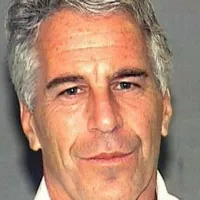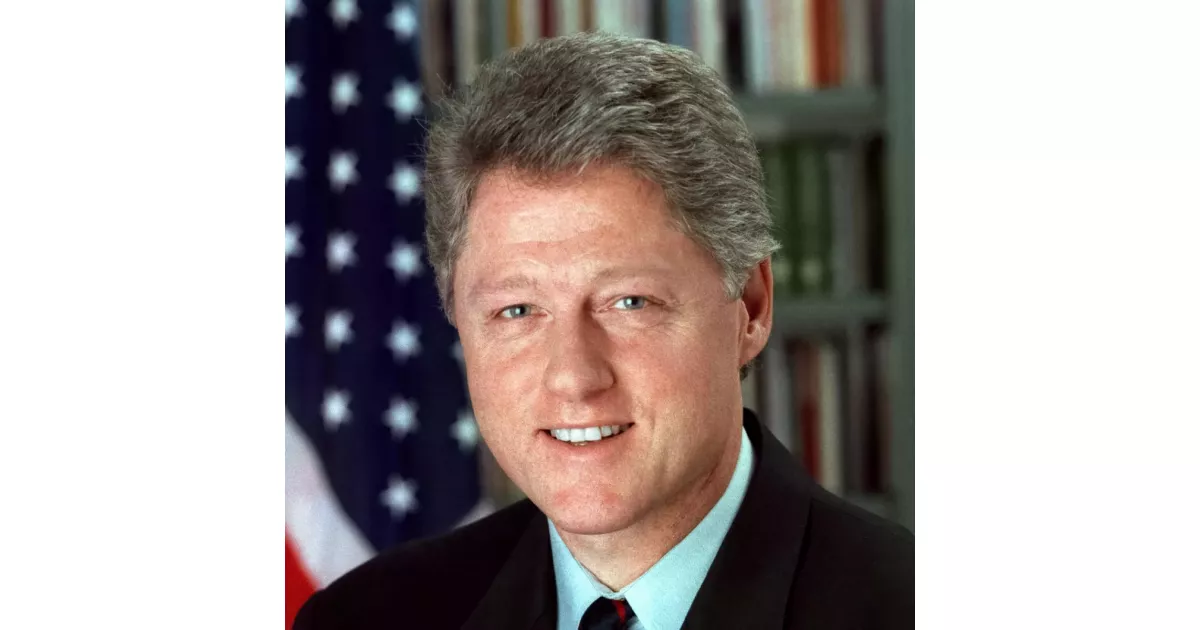A success timeline featuring the most significant achievements of Bill Clinton.
Bill Clinton, the 42nd U.S. President (1993-2001), served as Arkansas's Attorney General (1977-1979) and Governor (1979-1981, 1983-1992). A Democrat, his "Third Way" centrism, dubbed Clintonism, shaped his presidency. Key achievements include economic prosperity, NAFTA, and welfare reform. He faced impeachment proceedings related to his affair with Monica Lewinsky, but was acquitted. His presidency is viewed as a period of relative peace and economic growth, though marked by political polarization and scandal.
1968: Rhodes Scholarship
In 1968, after graduating from Georgetown, Bill Clinton won a Rhodes Scholarship to University College, Oxford.
1969: Budget Surplus
The Congressional Budget Office reported a budget surplus, the first since 1969.
1976: Elected Arkansas Attorney General
In 1976, Bill Clinton was elected as the Attorney General of Arkansas.
1978: Defeated Lowe for governor
In 1978, Bill Clinton defeated Lowe, a Republican candidate, for governor.
1978: Election as Governor of Arkansas
In 1978, Bill Clinton was elected Governor of Arkansas, defeating Republican candidate Lynn Lowe. At 32 years old, Clinton became the youngest governor in the country at the time, marking a significant career milestone.
1982: Defeated White for governor
In 1982, Bill Clinton defeated Republican candidate Frank White for governor.
1982: Re-elected as governor
In 1982, Bill Clinton was elected governor of Arkansas for a second time, and he maintained the office for ten years.
1984: Defeated Freeman for governor
In 1984, Bill Clinton defeated Woody Freeman, a Republican candidate, for governor.
1986: Defeated White for governor
In 1986, Bill Clinton defeated Republican candidate Frank White for governor again.
1990: Defeated Nelson for governor
In 1990, Bill Clinton defeated Sheffield Nelson, a Republican candidate, for governor.
1992: Elected President
In 1992, Bill Clinton was elected President of the United States, defeating incumbent George H.W. Bush and Ross Perot.
1992: Won presidential election
In 1992, Bill Clinton won the presidential election against George H. W. Bush and Ross Perot. Clinton's victory ended twelve years of Republican rule of the White House and gave Democrats full control of the United States Congress.
September 1993: Oslo Accords Signed
In September 1993, secret negotiations mediated by Clinton led to the Oslo Accords, a historic declaration of peace between Israel and the Palestine Liberation Organization (PLO). The Accords were signed at the White House on September 13.
November 30, 1993: Signing of the Brady Bill
On November 30, 1993, President Clinton signed the Brady Bill into law, mandating federal background checks for firearm purchases in the United States and imposing a five-day waiting period. He also expanded the Earned Income Tax Credit for low-income workers.
January 1, 1994: Signing of the North American Free Trade Agreement
On January 1, 1994, President Clinton signed the North American Free Trade Agreement (NAFTA) into law. Clinton supported the treaty throughout his first year in office, despite disagreement within the Democratic party. The bill passed the House and was ratified by the Senate.
1994: Honorary Degree from Oxford
In 1994, while serving as president, Bill Clinton received an honorary Doctor of Civil Law degree and a fellowship from the University of Oxford.
November 1995: Clinton Visits Northern Ireland
In November 1995, during a ceasefire during the Troubles, Bill Clinton became the first U.S. president to visit Northern Ireland, playing a key role in peace talks.
1996: Re-election to the Presidency
In 1996, Bill Clinton won re-election as President, defeating Bob Dole and Ross Perot.
1998: Clinton Plays Key Role in Good Friday Agreement
In 1998, Bill Clinton played a key role in the peace talks that produced the Good Friday Agreement in Northern Ireland.
1998: Budget Surplus
In 1998, the Congressional Budget Office reported a budget surplus of $69 billion during Bill Clinton's presidency.
February 12, 1999: Senate Acquits Clinton of Impeachment Charges
On February 12, 1999, the Senate acquitted Bill Clinton of both perjury and obstruction of justice charges, failing to reach the two-thirds majority required for conviction and removal from office.
1999: Budget Surplus
In 1999, the Congressional Budget Office reported a budget surplus of $126 billion during Bill Clinton's presidency.
March 2000: Independent Counsel Finds No Crime in FBI Files Controversy
In March 2000, Independent Counsel Robert Ray determined there was no credible evidence of any crime related to the White House FBI files controversy.
2000: Budget Surplus
In 2000, the Congressional Budget Office reported a budget surplus of $236 billion during Bill Clinton's presidency.
Mentioned in this timeline

Barack Obama the th U S President - was the...

Martin Luther King Jr was a pivotal leader in the...

Hillary Diane Rodham Clinton is a prominent American politician lawyer...

John F Kennedy JFK was the th U S President...

George W Bush the rd U S President - is...

Jeffrey Epstein was an American financier and convicted sex offender...
Trending

51 minutes ago Storm Causes Power Outages Across Central Coast and SLO County, Bringing Down Trees

2 hours ago Iva Jovic triumphs over Rakhimova in Dubai, reveals Pegula observation.

2 hours ago Andreeva vs. Cristian: WTA Dubai 2026 Prediction, Odds, and Match Preview.

2 hours ago Mirra Andreeva embraces attention, aims Dubai title defense, draws inspiration from LeBron James.

3 hours ago Severe Thunderstorm Warning Issued for Central California; Funnel Clouds Possible, Gusty Showers Expected

3 hours ago Iva Jovic Observed Jessica Pegula; Jovic Wins in Dubai First Round.
Popular

Jesse Jackson is an American civil rights activist politician and...
Randall Adam Fine is an American politician a Republican who...

Pam Bondi is an American attorney lobbyist and politician currently...

Barack Obama the th U S President - was the...

Kid Rock born Robert James Ritchie is an American musician...

XXXTentacion born Jahseh Dwayne Ricardo Onfroy was a controversial yet...
